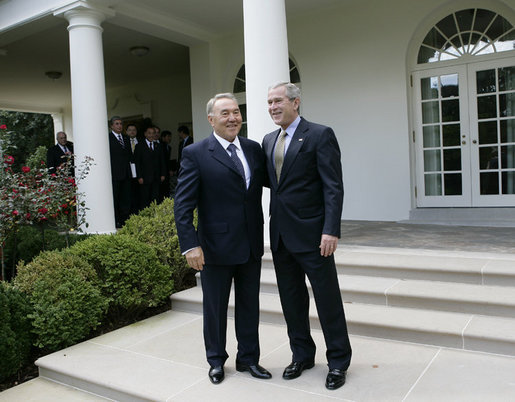Borat and the
Branding of Kazakhstan

When the comedy film “Borat: Cultural Learnings of America for Make Benefit Glorious Nation of Kazakhstan” was released on the world’s cinema screens in 2006, it produced a tsunami of international media acclaim. Warmly received by critics and the industry, the film’s chief protagonist, Sacha Baron Cohen, won the Golden Globe Award for Best Actor in comedy and the film was nominated for multiple awards, including Best Adapted Screenplay at the 79th Academy Awards, and by The Guardian. It was also a huge financial success, grossing $262 million at the box office worldwide.
Unfortunately, this global phenomenon was marred by the immediate and palpable sense of injury that it generated in Kazakhstan and throughout Central Asia.
To ordinary Kazakhs the enthusiastic reception the film received among audiences worldwide came as a nasty shock. Its title apart, Borat had no connection whatsoever to Kazakhstan. It was filmed in Romania, not Kazakhstan. The languages spoken by Borat and the lead actors included Hebrew, Armenian, Czech and Polish, but not Kazakh. The azbuka script was cod-Russian, not Kazakh. Even the cast did not contain a single Kazakh actor. For these reasons, the Kazakh government was, at least initially, as deeply offended as its citizens. It was puzzled as well as offended when Borat dominated US news bulletins during the state visit to Washington of the Kazakh president, Nursultan Nazarbayev, in 2006.
Although Kazakhs were understandably slow to recognise it, Borat the movie in fact provided a huge opportunity. Despite its size – Kazakhstan is larger than Western Europe – many Americans and Western Europeans unlikely to tell you where it is or cite a single fact about it. Borat provided the occasion to launch a global branding campaign for Kazakhstan that had the potential, quite literally, to put the country on the map.
The initial brief of WorldPR had been to counteract the false and misleading impression created by the film; our task was seen largely as a damage limitation exercise. But we were able to do much more than that, transforming the negative attitudes created by the film-makers into genuine interest and curiosity about a country of which very little was known. Instead of trying to dampen interest in Borat we used the controversy surrounding the movie to place media talking-points and news items as well as op-eds in The Guardian (make hyperlink to article) and The Spectator (make hyperlink to article) to explain the facts about Kazakh’s growing political and economic significance and (see below).
Sure enough, over time, Borat the movie played an important role in sharpening Kazakhstan’s visibility, enabling us to draw attention to its rapid economic growth, improving living standards and educational standards as the country ascended the regional ladder to assume a leadership role in Central Asia. Tourism boomed as a direct consequence of the movie while media interest in the country also grew significantly. The result was a noticeable change of mood and approach in Kazakhstan. In November 2006, on visit to the London, President Nazarbayev displayed his sense of humour when he asked at a press conference in Downing Street if there was a question “from our dear friend Borat”. This gesture, which was widely reported, reflected the fact that something that had originally been perceived as grossly unfair and a PR disaster had been transformed into a successful demonstration of effective soft power. The episode has undoubtedly influenced the way in which the country has successfully leveraged Sasha Baron Cohen’s latest iteration of Borat to its advantage.
Article by President Nursultan Nazarbayev, The Spectator, 25th November 2006
Branding of Kazakhstan
